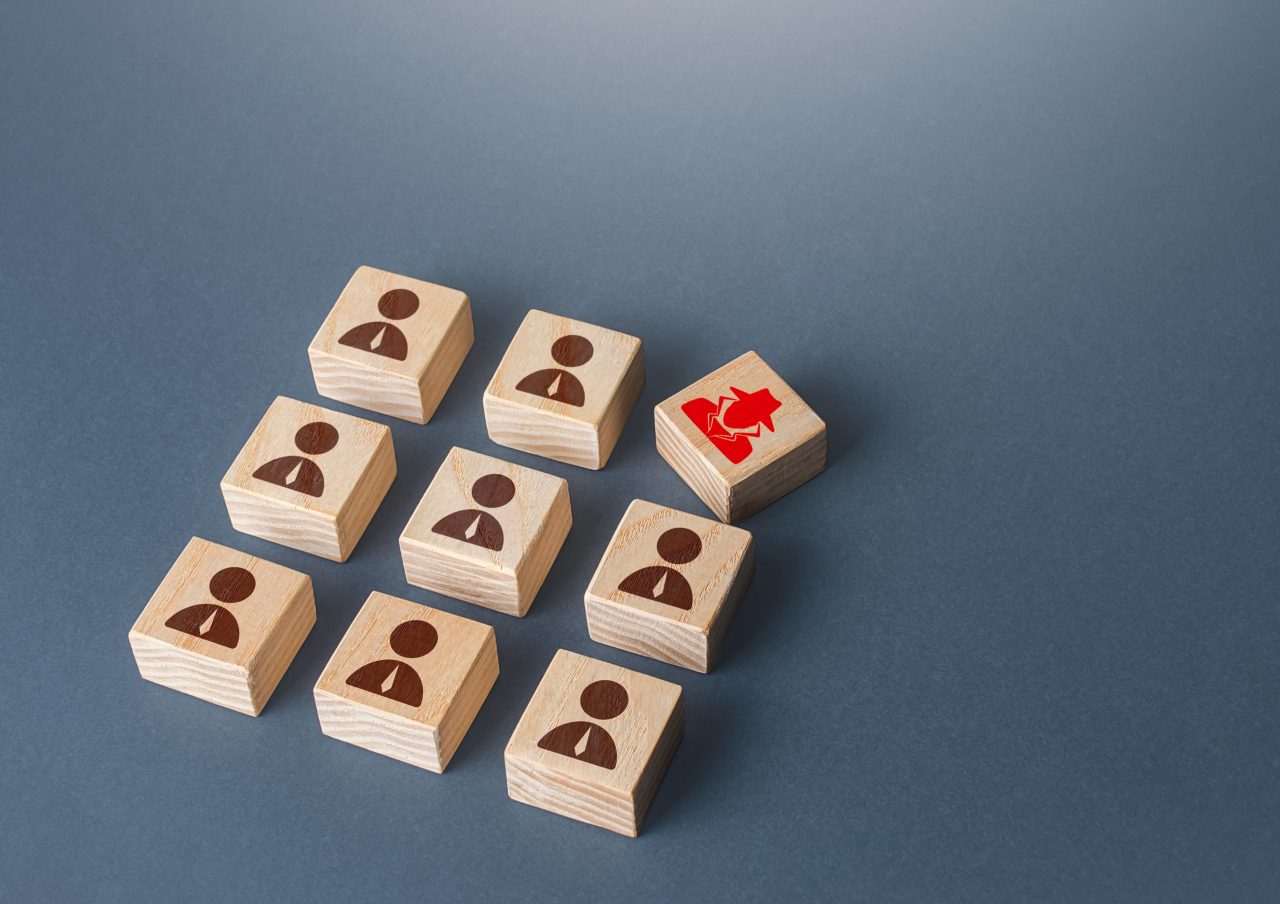'P*ssy grabbing' threats are now a thing in Trump's America
In October, Donald J. Trump insisted his hot mic comments from 2005 were harmless "locker room talk." Now that Trump's the president-elect, however, some men have turned the implied violence of his "pussy grabbing" into a slur to publicly harass and intimidate women.
SEE ALSO:Trump's America: What women, immigrants and people of color want you to knowThe disturbing trend surfaced in a recent report published by the Southern Poverty Law Center, an organization that monitors hate groups and has collected reports of bias, intimidation and harassment in the wake of the presidential election.
Women across the country told the SPLC that boys and men had invoked Trump's vulgar phrasing, essentially threatening to sexually assault them. In the 10-day time period that SPLC reviewed, such harassment occurred, on average, twice a day.
“You better be ready because with Trump, we can grab you by the pussy even if you don’t want it.”
One woman in Arlington, Virginia, said two young men shouted from their car: “You better be ready because with Trump, we can grab you by the pussy even if you don’t want it.”
A man on a New York subway told a girl that he was "allowed to grab my pussy because it’s legal now."
On Nov. 15, Laura, an educator who lives in St. Paul, Minnesota, playfully waved at a school bus with kids who appeared to be in middle school. She was stunned when boys in the back shouted, "grab her by the pussy, grab her by the pussy."
The incident, which happened in the evening at a busy intersection near the University of Minnesota campus, lasted seconds and Laura didn't see the school district's name on the bus before it disappeared.
While she reported the harassment to SPLC and shared screenshots of text messages with another person who witnessed it, Laura didn't feel comfortable sharing her last name with Mashable because she didn't want to be associated with the slur online.
"I shouldn’t be ashamed because I didn’t do anything wrong," she said.
Tweet may have been deleted
Jenny, who lives in the Seattle area and is in her early 30s, felt the same way. She didn't want to be publicly associated with the slur, but reported her experience to the SPLC.
A few days after the election, Jenny stopped by the grocery store after work and was walking toward the door when a man standing nearby said, "Damn, I need to grab that pussy."
Her harasser was wearing a Seahawks jersey and a baseball cap. While he didn't identify himself as a Trump supporter, Jenny believes the slur referenced the president-elect's own words.
"I’ve never heard anyone say something like that," she said. "Sometimes guys will be inconsiderate and shout things, but this felt threatening."
In total, 21 women shared stories with the Southern Poverty Law Center that involved threats of "pussy grabbing." It was the most common type of "anti-woman" harassment the organization tracked. Four other cases included threats of sexual assault, but didn't use Trump's crass phrase. One woman in Spokane, Washington, said she encountered young men who shouted, "We're going to rape you!" from a car that bore Trump's name on its side.
Overall, SPLC collected 867 cases of "hate incidents" that transpired in the 10 days following Trump's victory. A third of those were classified as anti-immigrant and nearly a quarter reflected anti-black sentiment. The anti-woman reports made up 5 percent of all incidents.
"I shouldn’t be ashamed because I didn’t do anything wrong."
The SPLC notes these cases, which are drawn from volunteer submissions and the media, represent a "small fraction" of the actual number of incidents that have occurred since the election. Women who experience Trump-related harassment may not know how to report their experiences, or feel embarrassed to talk about it with others.
While some may have expected Trump's hot mic comments to remain a revolting footnote of the campaign, it's clear women in America are confronting a new reality: Harassers feel emboldened by Trump's election, and they're using the words of the president-elect as a weapon of intimidation.
"If it had been five weeks ago, those boys would not have yelled that at me," Laura said. "The fact that it’s being yelled is why it feels so threatening to a woman, because it’s a violation."
Shaunna Thomas, cofounder of the women's advocacy group UltraViolet, bemoaned the development, contrasting it with victories in recent years to hold politicians, corporate leaders and media figures accountable for sexist remarks and behavior.
"Significant strides were being made [against sexism] when people were able to say collectively, 'This is not who we are," said Thomas. "Enter Donald Trump. He has provided an excuse or even a reason for people who have felt oppressed by the rise of feminism to ... to repeat the things he says."
Tweet may have been deleted
Thomas is also deeply concerned that Trump's administration will stop pursuing government initiatives to create and promote gender equality. That could include pulling back on aggressive efforts to prevent sexual assault on college campuses and investigate institutions ignoring such accusations.
"His presidency represents a real threat both logistically and culturally," Thomas said.
Debjani Roy, deputy director of the anti-street harassment organization Hollaback, said the nonprofit noticed a marked increase in its bystander intervention webinars since the election. Recent participants, she said, shared numerous anecdotes of bias and intimidation involving sexual harassment, racism, anti-semitism and xenophobia.
"We see a lot of verbal harassment taking place but people are feeling emboldened to go further with it."
"We see a lot of verbal harassment taking place but people are feeling emboldened to go further with it," she said. "They feel confident to take it to the next level, assuming there are zero consequences for that."
Roy said women who experience street harassment of any kind, including the type linked to Trump's election, should assess their safety before responding. When choosing to confront a harasser, Roy recommends keeping it succinct instead of engaging in a conversation. She also suggests using strong body language, making eye contact and "taking up" space. Yet, Roy noted the climate has changed; escalation may happen quickly and telling a harasser he's being disrespectful may have no effect.
Roy believes the solution lies in widespread accountability, including on the part of bystanders. "It can no longer be in the hands of the individual," she said.Laura, the educator in Minnesota who was harassed by students, remains troubled by the incident."I thought we were better than this," she said. "This is not OK and it's being yelled out of a school bus window."
TopicsGender
(责任编辑:资讯)
 Slot extends perfect Liverpool start
Slot extends perfect Liverpool start The Wonderful World of Christmas Trees
The Wonderful World of Christmas Trees Military prosecutors indict intel official over leaking 'black agent' info
Military prosecutors indict intel official over leaking 'black agent' info![[From the Scene] How ‘world’s first oil town’ is wrestling to become ‘green'](http://res.heraldm.com/content/image/2024/08/26/20240826050707_0.jpg) [From the Scene] How ‘world’s first oil town’ is wrestling to become ‘green'
[From the Scene] How ‘world’s first oil town’ is wrestling to become ‘green' 14 Heists, Robberies, and Other Great Capers
14 Heists, Robberies, and Other Great Capers
- Korea's economy to stop growing without drastic labor change: FKI
- [Graphic News] Average book price nears 20,000 won
- If aliens harnessed solar power, could we detect them? NASA investigated.
- Military prosecutors indict intel official over leaking 'black agent' info
- Game Plan
- 13 Places to Find Little Legends and Compact Cryptids
- PS5 Pro: There are new whispers that the release date is fast approaching
- 9 Festive Holiday Treats and Where to Find Them
-
13 Unbelievable Underwater Wonders in Florida
 A must for any aquatic adventurer is a visit to the City of Mermaids at Weeki Wachee, which offers a
...[详细]
A must for any aquatic adventurer is a visit to the City of Mermaids at Weeki Wachee, which offers a
...[详细]
-
 Hannah Gais ,July 16, 2024 To Russia, with
...[详细]
Hannah Gais ,July 16, 2024 To Russia, with
...[详细]
-
South Korean lawmakers brace for US election as Harris, Trump diverge on North Korea
 Democratic presidential nominee and US Vice President Kamala Harris waves from the stage on Day 4 of
...[详细]
Democratic presidential nominee and US Vice President Kamala Harris waves from the stage on Day 4 of
...[详细]
-
Pakistan Cricket at crossroads after shock defeat at Pindi
 KARACHI:Bangladesh cricket team's stunning ten-wicket Test victory at Rawalpindi on Sunday yet a
...[详细]
KARACHI:Bangladesh cricket team's stunning ten-wicket Test victory at Rawalpindi on Sunday yet a
...[详细]
-
Unionized hospital workers pull out from strike
 Health care workers at Chosun University Hospital hold signs and chant slogans at the hospital'
...[详细]
Health care workers at Chosun University Hospital hold signs and chant slogans at the hospital'
...[详细]
-
 阳江村K开麦,阳西3人晋级!| 2024广东乡村歌手大赛_南方+_南方plus8月20日晚,2024广东乡村歌手大赛阳江赛区正式开启。首场赛事在阳西县的“文化地标”——阳西县文化馆演艺厅拉开序幕。演艺
...[详细]
阳江村K开麦,阳西3人晋级!| 2024广东乡村歌手大赛_南方+_南方plus8月20日晚,2024广东乡村歌手大赛阳江赛区正式开启。首场赛事在阳西县的“文化地标”——阳西县文化馆演艺厅拉开序幕。演艺
...[详细]
-
Aricell CEO arrested in first case under industrial accidents law
 Aricell CEO Park Soon-kwan is escorted to a detention center after attending an arrest warrant heari
...[详细]
Aricell CEO Park Soon-kwan is escorted to a detention center after attending an arrest warrant heari
...[详细]
-
Campbell highlights Washington Declaration amid security concerns over Putin
 U.S. Deputy Secretary of State Kurt Campbell, center, speaks during a joint press conference at the
...[详细]
U.S. Deputy Secretary of State Kurt Campbell, center, speaks during a joint press conference at the
...[详细]
-
Best smart home deals this week
 Our top picks:Best smart speaker dealEcho Dot (5th gen) with a free Sengled Smart Color Bulb$49.99 a
...[详细]
Our top picks:Best smart speaker dealEcho Dot (5th gen) with a free Sengled Smart Color Bulb$49.99 a
...[详细]
-
I Deleted All My Social Accounts: Three Weeks Without Social Media
To say that a lot of people use social media is an understatement. At last count, Facebook had more ...[详细]


